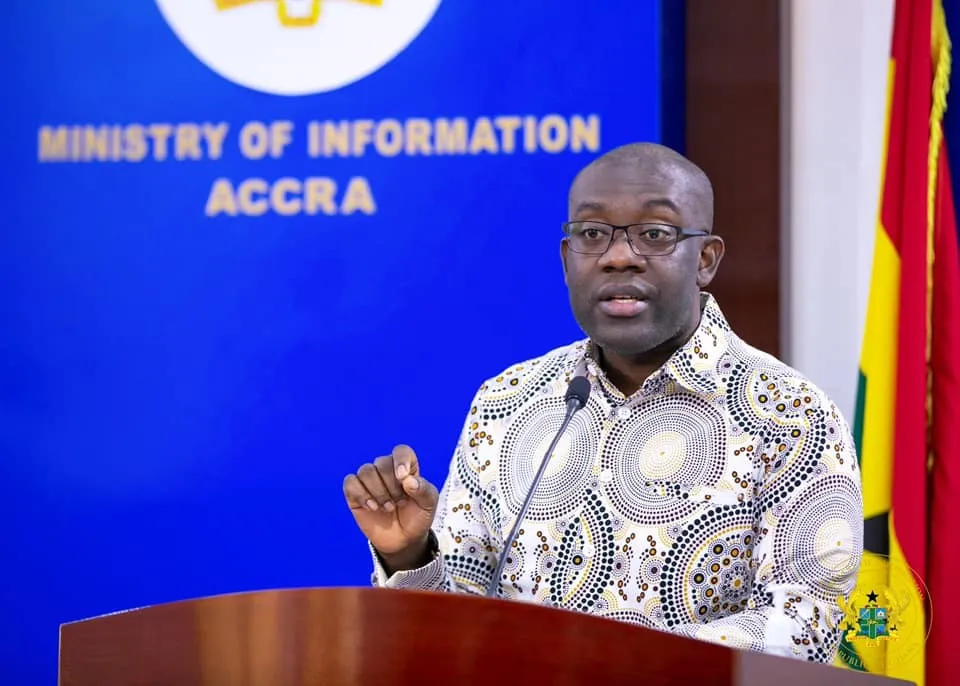The recent staff-level agreement between the Ghanaian government and the International Monetary Fund (IMF) has sparked renewed debate about the state of the nation’s economy and the performance of successive administrations. Kojo Oppong Nkrumah, a Member of Parliament and Ranking Member on the Economy and Development Committee, has called for a focus on consolidating economic gains rather than engaging in politically motivated criticism. He argues that the current National Democratic Congress (NDC) government should build upon the progress made, rather than attempting to undermine it for political advantage. Nkrumah’s comments come in response to the minority’s assertion that the IMF agreement vindicates the previous New Patriotic Party (NPP) administration, which the NDC has accused of mismanagement and breaching a prior IMF program. This back-and-forth highlights the ongoing tension between the two major political parties and the potential for political considerations to overshadow economic progress.
At the heart of the disagreement lies the interpretation of economic data and the attribution of responsibility for the current economic situation. The NDC government has previously claimed that the NPP’s mismanagement led to the current economic challenges, necessitating the IMF bailout. However, the minority NPP argues that the recent IMF agreement contradicts this narrative, suggesting that the previous administration had laid a solid foundation. Nkrumah specifically accuses the NDC of deliberately discrediting economic data for political gain, a tactic he claims has been exposed by the IMF’s own assessment. He contends that the IMF’s findings demonstrate that the Ghanaian economy, despite its challenges, is still on the right track, a testament to the previous administration’s policies.
Nkrumah’s call for policy continuity underscores a critical aspect of economic development: the need for consistent and predictable policies that transcend partisan politics. He emphasizes that constant shifts in economic direction, driven by political expediency rather than sound economic principles, can undermine investor confidence and hinder long-term growth. While acknowledging the importance of robust debate and scrutiny of government policies, Nkrumah argues that this should not come at the expense of national economic progress. He suggests that a more collaborative approach, where both the ruling party and the opposition work together to build upon existing gains, would better serve the interests of the nation.
The ongoing debate also raises questions about the role of international institutions like the IMF in shaping national economic narratives. The IMF’s assessment, while technical in nature, inevitably carries political weight and can be interpreted differently by opposing political factions. In this case, the minority NPP sees the IMF agreement as validation of their previous policies, while the NDC government likely views it as a necessary step to address inherited economic challenges. The IMF’s involvement, therefore, becomes another layer in the complex interplay between economics and politics in Ghana.
Looking ahead, the challenge for Ghana lies in finding a balance between political accountability and the need for economic stability. While holding previous administrations accountable for their economic decisions is crucial, it is equally important to avoid using economic data as a political weapon. A more constructive approach would involve a bipartisan effort to analyze the IMF’s findings objectively and develop a shared vision for the future of the Ghanaian economy. This requires a willingness from both sides to move beyond partisan rhetoric and prioritize the long-term economic well-being of the nation.
Ultimately, the success of Ghana’s economic recovery will depend on the ability of its political leaders to transcend partisan divisions and work together towards common goals. Nkrumah’s call for policy continuity and responsible governance serves as a timely reminder that political point-scoring should not come at the expense of sustainable economic development. The IMF agreement presents an opportunity for a fresh start, a chance for both the ruling party and the opposition to collaborate on a path forward that benefits all Ghanaians. The true test of political leadership lies not in assigning blame or claiming credit, but in the ability to unite in the pursuit of shared economic prosperity.














